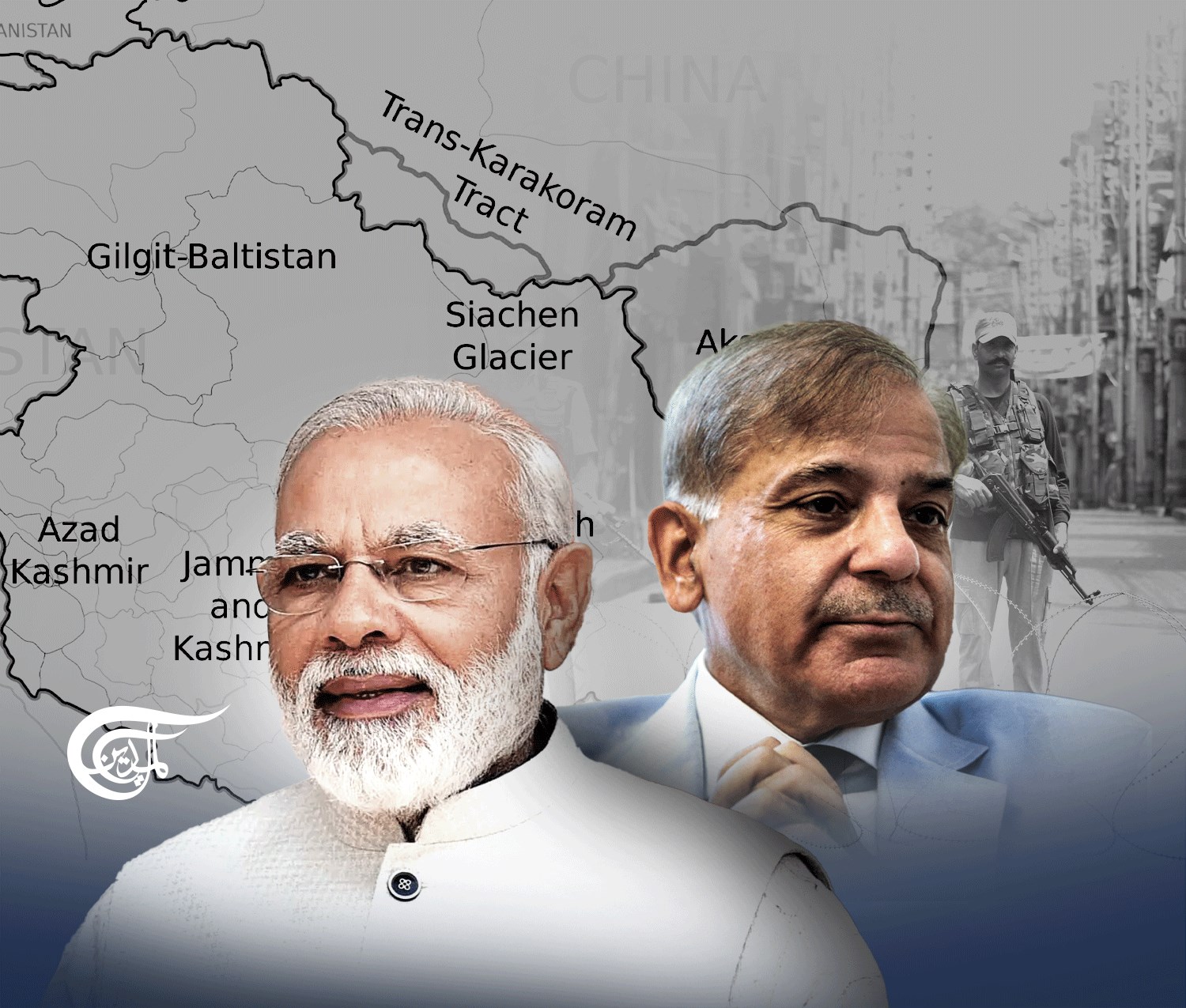Pakistan's peace talk offer met with mixed reactions from India and region
The prolonged conflict in Jammu and Kashmir has worn down the people of the region, who now seek a peaceful resolution to the bad blood between Pakistan and India.
-

The Kashmir issue between India and Pakistan pertains to the territorial dispute over the region of Kashmir, a mountainous area located in the northern part of the Indian subcontinent.
On August 1, when the then-Pakistani Prime Minister expressed readiness to resume bilateral dialogue with India, it led to a strong reaction from India, asserting that "an environment free of terror and hostility is imperative", however, this announcement garnered a mixed response from the regions of Jammu Kashmir and Ladakh.
Ex-Pakistani Prime Minister Shehbaz Sharif made this announcement while expressing his willingness to engage in bilateral discussions with India. Sharif underscored the significance of a serious and substantial dialogue, stating, "We are prepared to talk with everyone, even with our neighbor, provided that the neighbor is serious about discussing significant matters at the table, because war is no longer an option."
The United States also lent its support to direct dialogue between India and Pakistan.
Matthew Miller, spokesperson for the US Department of State, stated on Wednesday that the United States has consistently advocated for direct dialogue between the two nations.
He affirmed during a press briefing in Washington DC, "As we have long said, we support direct dialogue between India and Pakistan on the issues of concern. That has long been our position."
However, India staunchly rejected the idea of resuming talks, asserting that Pakistan needs to establish a peaceful environment before talks can restart.
Ministry of External Affairs Spokesperson Arindam Bagchi stated, "We have seen reports regarding comments by the ex-Pakistani Prime Minister on this issue. India's clear and consistent position on this is well-known. We desire normal neighborly relations with all our neighbors, including Pakistan. For this, an environment free of terror and hostility is imperative."
In Jammu and Kashmir, the people and political leaders remained unmoved by the offer of talks, stating that both sides need to carefully consider the offer and that a "conducive environment for talks" is necessary before any such discussions can occur.
Amir Hussain, a Political Science student at Jammu University, raised the question, "It is good to offer talks, but can the person who offers such talks deliver them?"
“Politically, Sharif lacks the political leverage to initiate peace negotiations as he will soon face National elections in the country.”
The Jammu Kashmir National Conference (JKNC), the oldest and largest political party in the Union Territories of Jammu Kashmir and Ladakh, welcomed the offer and advocated for a peaceful resolution. The party emphasized that conflict and war are not the solution.
"Our Party has always been supportive of dialogue between India and Pakistan to solve all issues. The leadership of both countries should sit across the table and talk to solve the issues," JKNC State spokesperson Imran Nabi told Al Maydeen English.
He asserted that such an offer is a welcome step.
“We are welcoming this offer. Dialogue is the only way forward to solve the issues. Conflict and war are not the solution,” he added.
Rao Farman, Kashmir-based author and Political analyst, while expressing happiness about such an offer, says the contours of talks are never made public which results in dissonance, so people of Kashmir are at arm's length to such offers.
"There is no common mosaic between the two nuclear power nations which can lead to the final peace or solution to the issue," he said.
"We don't know what the offer is. There is no public document to define the talks or issues. The offer should come as a detailed document, and the people of Jammu and Kashmir should know its contents," he added.
Relations between India and Pakistan have been historically strained, marked by territorial disputes and armed conflicts. Both countries fought three wars since gaining independence from British rule in 1947. Two of these wars were fought over the “disputed” region of Kashmir, which remains a central point of contention between the two nations.
India accuses Pakistan of supporting a long-standing armed rebellion in Jammu and Kashmir, an allegation Pakistan vehemently denies.
The Kashmir issue between India and Pakistan pertains to the territorial dispute over the region of Kashmir, a mountainous area located in the northern part of the Indian subcontinent. The conflict has its roots in the partition of British India in 1947, which led to the creation of the two independent nations of India and Pakistan.
Since then, both countries are claiming ownership of the entirety of the region but are governing the two parts of the erstwhile state of Jammu and Kashmir. The Indian side used to call Indian-Administered Kashmir as Jammu and Kashmir, and the Pakistani-Administered Kashmir as Pakistan Occupied Kashmir.
Tensions escalated in 2019 when India's government, led by Prime Minister Narendra Modi, revoked the special status of Jammu and Kashmir and divided the region into the Union Territories of Jammu and Kashmir, and Ladakh.
The move escalated tensions between the two nations resulting in the downgrading of diplomatic ties.
Importantly, this recent call for India to engage in bilateral talks is not the first from Pakistan. In January of the same year, PM Shehbaz emphasized a similar sentiment during an interview with a Dubai-based television network.
"I urge the Indian leadership and Prime Minister Modi to come together at the negotiation table for earnest and meaningful discussions aimed at resolving longstanding issues such as Kashmir. The choice is ours – to coexist harmoniously, advancing our societies, or to engage in discord, squandering valuable time and resources," he said.
The prolonged conflict in Jammu and Kashmir has worn down the people of the region, who now seek a peaceful resolution. Gull Mohammed, a local shopkeeper in south Kashmir’s Anantnag district, expressed hope for peace, saying, “We have seen enough conflict and bloodshed in Kashmir. We want to live peacefully. Let the two Prime Ministers decide what they want to do. As a common Kashmiri, my only hope is of peace."
"We have come a long way. I think it is better to concentrate now on our future and that of the generations to come. We hope to live in peace now and always," he concluded.

 Tawqeer Hussain
Tawqeer Hussain
 6 Min Read
6 Min Read











